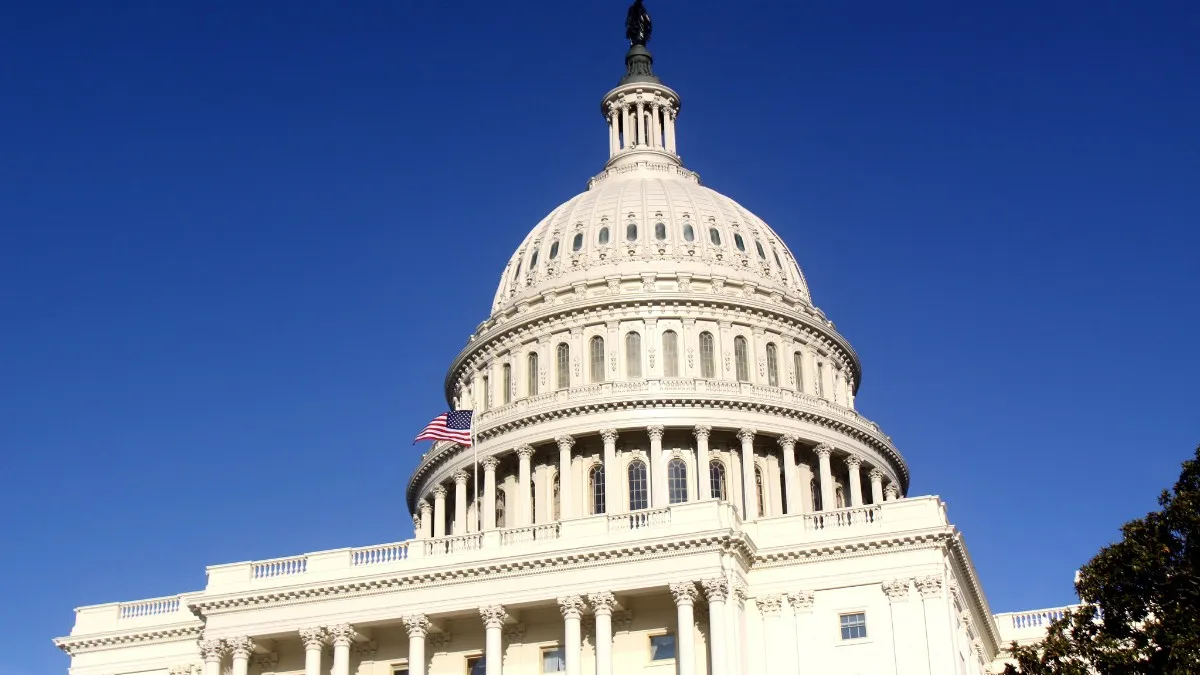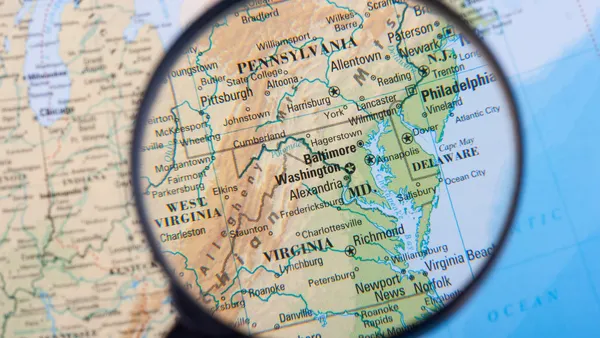Dive Brief:
-
President Donald Trump on Friday signed legislation to infuse the Paycheck Protection Program (PPP) with $320 billion in funding for small-business loans.
-
The PPP money was part of a $484 billion coronavirus relief package the House passed a day earlier by a vote of 388-5.
-
The measure follows an initial $350 billion in loans that rolled out April 3, but ran out 13 days later.
Dive Insight:
The package ensures $60 billion in loans will be accessed by banks and credit unions that have $50 billion or less in assets. The measure also includes $60 billion in loans and grants for the Economic Injury Disaster Loan program, $75 billion for hospitals and $25 billion for virus testing.
A lack of agreement over those set-asides held up this most recent relief bill for nearly two weeks. However, Democratic lawmakers failed to persuade Republicans to include in the measure funding for states and local governments. That may yet be included in an upcoming round of funding.
Despite the legislation's overwhelming bipartisan support, members of both parties sniped at one another, with House Minority Leader Kevin McCarthy, R-CA, blaming Democrats for the delay. "To those 4.4 million Americans who were laid off this week, Congress owes you an apology. You did not have to have that happen," he said, according to The Wall Street Journal.
Meanwhile, House Speaker Nancy Pelosi, D-CA, took the compromise as a victory. "Republicans are voting for things I don’t think they ever thought they would vote for," she said.
The first round of funding drew fire over a number of faults. The Small Business Association (SBA) issued guidance for the program just hours before the money became available. That cost even some of the biggest banks days of access to the platform. Additionally, the loan application portal suffered an hours-long outage before eventually getting an upgrade.
Nonbank lenders, meanwhile, only became eligible to participate in the loan program when there was less than a week's worth of money remaining.
Demand for the loans was so great that institutions such as Bank of America initially restricted applications to existing customers. Wells Fargo, meanwhile, encouraged its surplus of applicants to try another lender. And lawsuits accused four big banks — JPMorgan Chase, U.S. Bank, Wells Fargo and Bank of America — of prioritizing large loans because of their hefty processing fees rather than taking applicants on a first-come, first-served basis.
A number of lenders have continued to process applications in anticipation of the new round of funding, leading industry analysts to suspect the fresh $320 billion in loans will run out quickly.
"This is going to go within, at most, 72 hours," Consumer Bankers Association President Richard Hunt told Politico. "But the odds are more like 48 hours."













